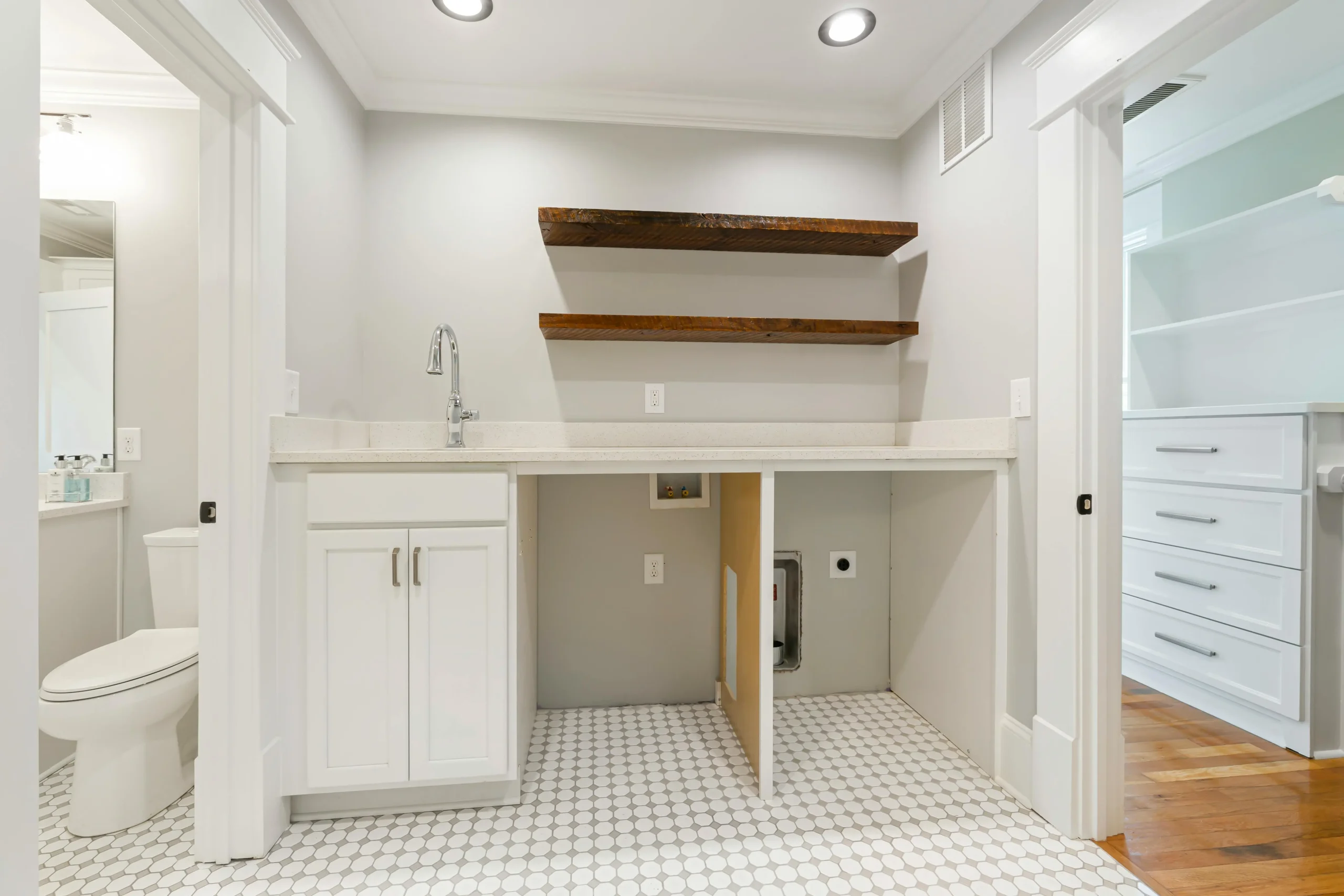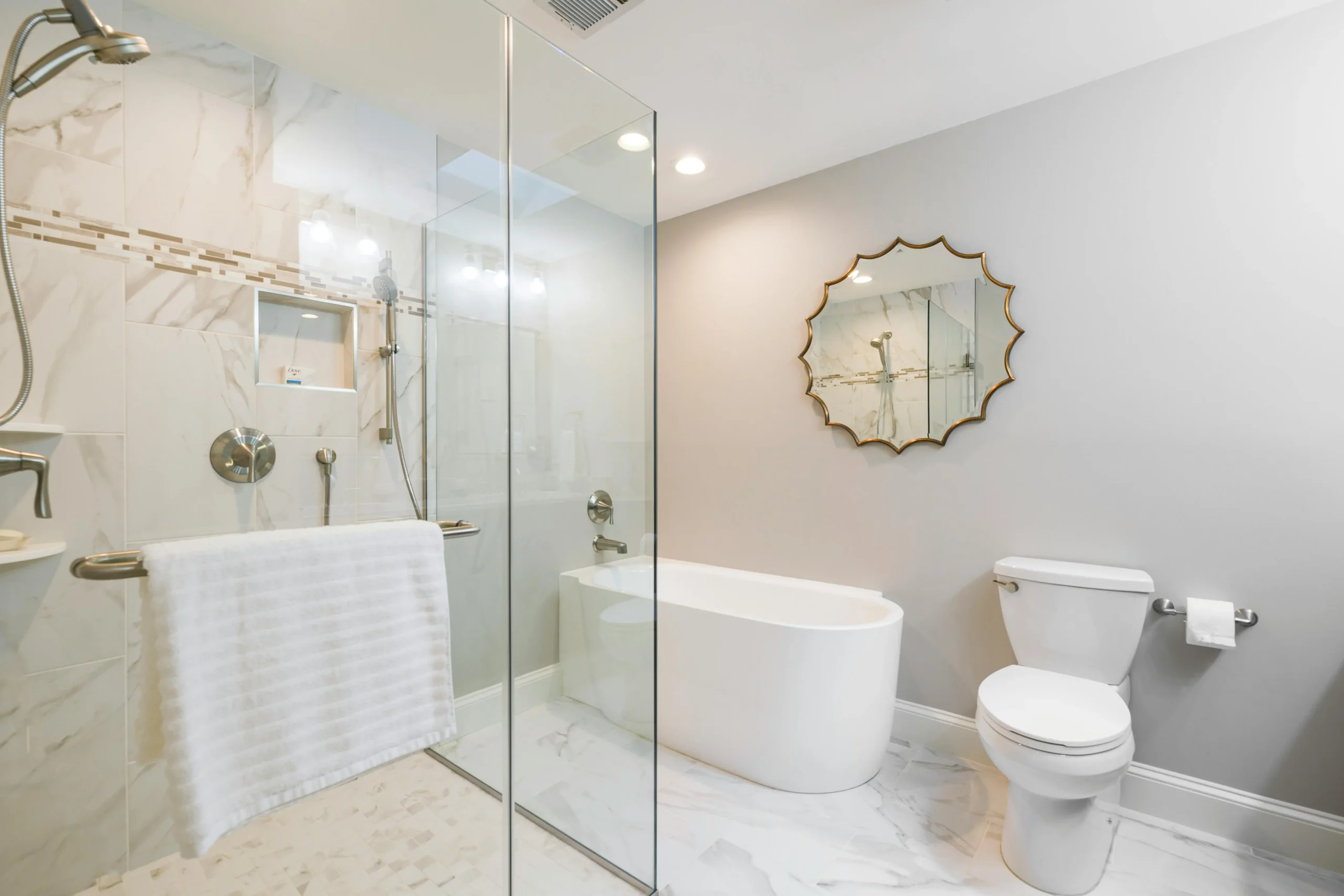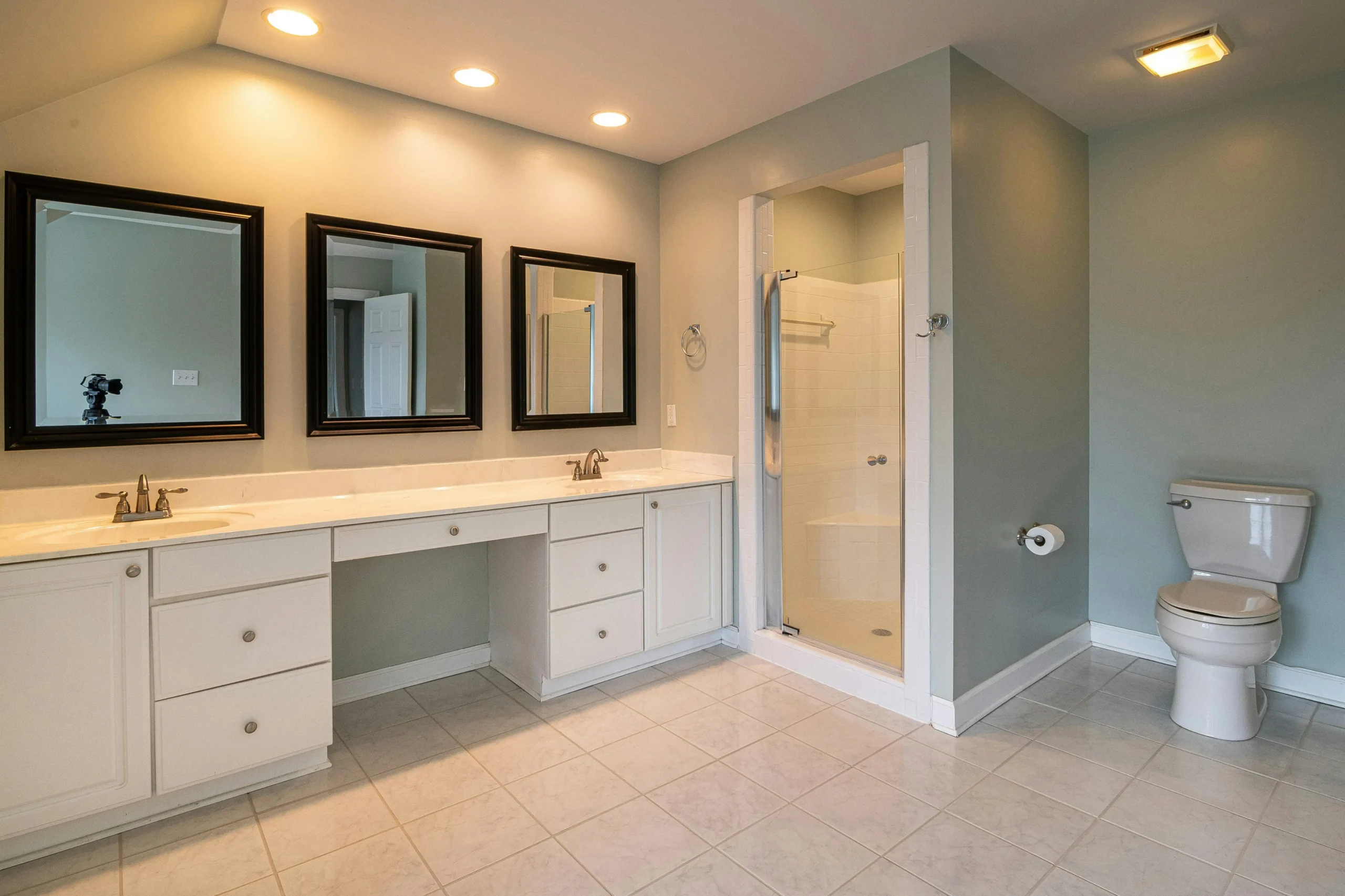Breaking Down Fort Worth Kitchen Remodel Costs
Understanding Fort Worth kitchen remodel costs is crucial for homeowners looking to upgrade their space. Whether it’s a minor update or a complete overhaul, estimating costs beforehand ensures a smoother renovation process. Several factors influence pricing, including cabinetry, countertops, appliances, and labor expenses. In Fort Worth, the cost of materials and contractor fees can vary depending on market trends and availability. Utilizing a cost calculator can help homeowners estimate expenses and prepare an appropriate budget. Kitchen remodels often go hand in hand with bathroom renovations, allowing homeowners to enhance multiple areas of their homes simultaneously. By assessing cost components such as flooring, lighting, and layout modifications, homeowners can create a detailed financial plan. It’s also essential to consider additional costs such as permits and inspections. Understanding the financial breakdown of a kitchen remodel ensures a well-structured project that stays within budget. Whether you’re opting for high-end finishes or budget-friendly upgrades, planning for costs ahead of time will lead to a more seamless renovation experience.
Factors Influencing Remodeling Costs
Several factors contribute to the overall cost of a kitchen remodel in Fort Worth, making it essential for homeowners to plan carefully. The type and quality of cabinetry play a significant role, as custom cabinets can be significantly more expensive than stock options. Material selection for countertops, flooring, and backsplashes also impacts the final budget, with premium materials such as quartz and marble driving up costs. Labor charges can vary depending on the complexity of the remodel and the experience level of the contractor. Homeowners should also account for potential structural changes, including modifications to plumbing and electrical systems. Unexpected costs can arise if hidden issues, such as outdated wiring or water damage, are discovered during demolition. Additionally, homeowners should consider market trends, as labor and material costs fluctuate based on demand. Consulting with professionals for cost estimates and detailed budgeting strategies helps in making informed financial decisions. Understanding these factors allows homeowners to allocate their budget efficiently and avoid surprises. A well-researched remodeling plan ensures optimal results while maintaining cost control.
Material Costs for Major Kitchen Renovations
Material selection plays a significant role in determining the total cost of a Fort Worth kitchen remodel. Cabinets often make up a substantial portion of the budget, with options ranging from budget-friendly laminate to high-end custom woodwork. Countertops vary in price, with granite, quartz, and marble offering durability and elegance but at a higher cost. Backsplashes add personality and style to a kitchen, and materials like subway tile or glass mosaics can range from affordable to premium pricing. Flooring choices such as hardwood, tile, and luxury vinyl plank differ in cost and maintenance requirements. Fixtures, including sinks, faucets, and lighting, contribute to both aesthetics and functionality, with modern energy-efficient options available. Appliances should also be factored into the budget, as high-tech smart appliances can add significant expense. Additionally, finishing touches such as cabinet hardware and paint affect the final look and feel of the kitchen. Homeowners should weigh durability and aesthetic appeal when selecting materials. A strategic approach to material selection ensures both quality and budget adherence. Investing in the right materials enhances longevity and value in a kitchen remodel.
Fort Worth Labor Costs for Kitchen Remodels
Labor costs in Fort Worth significantly impact the overall price of a kitchen remodel. Skilled professionals such as electricians, plumbers, and carpenters contribute to the total project cost, depending on the complexity of the work involved. General contractors oversee the project, ensuring that all elements align with the homeowner’s vision and budget. Installation services for cabinets, countertops, and flooring require specialized skills, which influence labor costs. If structural modifications are needed, such as knocking down walls or relocating plumbing, labor expenses can rise substantially. Homeowners should request multiple quotes from experienced professionals to compare pricing and services. Additionally, permitting fees and inspections may add to labor-related costs. Choosing a reputable contractor ensures high-quality workmanship and adherence to building codes. Homeowners should communicate clearly with their contractors to avoid misunderstandings regarding labor costs. Understanding labor expenses helps in creating an accurate budget for the renovation. Properly managing labor costs leads to a well-executed and cost-effective kitchen remodel.
Kitchen Remodel Cost Guide for Beginners
For homeowners new to kitchen remodeling, understanding cost components is key to a successful renovation. The budget should be divided into categories such as design, materials, labor, and contingency funds. A detailed cost calculator can help estimate expenses for cabinets, countertops, flooring, and lighting. Setting a realistic budget ensures that homeowners avoid overspending while still achieving desired upgrades. Consulting with kitchen design professionals can provide valuable insights into cost-effective remodeling options. Selecting mid-range materials instead of luxury finishes can help reduce costs while maintaining a high-end appearance. Appliances should be chosen based on both functionality and energy efficiency to ensure long-term savings. Permits and inspections should also be factored into the total remodel budget. A well-planned remodeling project minimizes unexpected expenses and delays. Following a structured budget allows homeowners to enjoy a smooth renovation process with satisfying results.
Budgeting Tips for Kitchen Remodels
Effective budgeting is crucial for homeowners embarking on a kitchen remodel in Fort Worth. Establishing a clear financial plan helps avoid overspending and ensures funds are allocated efficiently. Prioritizing essential upgrades such as cabinetry, countertops, and appliances prevents unnecessary expenses. Researching cost-effective alternatives for materials and finishes can significantly reduce overall spending. Getting multiple quotes from contractors helps homeowners find the best value for professional labor. Setting aside a contingency fund of at least 10-20% of the budget prepares for unexpected costs. Shopping during seasonal sales or looking for clearance items can lead to substantial savings. Homeowners should consider tackling small DIY tasks, such as painting or minor installations, to cut down labor costs. Investing in durable and timeless materials prevents frequent renovations and additional expenses in the future. A strategic approach to budgeting ensures a successful and stress-free kitchen remodel. Planning ahead helps homeowners achieve their dream kitchen within a reasonable budget.
High-End vs. Budget Kitchen Remodel: Cost Differences
Homeowners in Fort Worth must decide between a high-end kitchen remodel or a budget-friendly renovation. High-end kitchen remodels typically feature custom cabinetry, luxury countertops, and top-of-the-line appliances. These premium upgrades create a sophisticated space but come with a higher price tag. Budget kitchen remodels focus on cost-effective solutions such as refinishing existing cabinets and using laminate or butcher block countertops. Smart material selection allows budget remodels to achieve a stylish appearance without excessive spending. High-end remodels often include layout modifications, which require additional labor and permitting costs. Budget-conscious homeowners can make impactful changes through simple upgrades like new lighting or a fresh coat of paint. The return on investment for both remodel types depends on the quality of work and current real estate trends. Homeowners should evaluate their long-term goals before deciding on an upscale or budget remodel. Proper planning ensures that any remodel type meets aesthetic and functional needs. Balancing cost and value ensures a remodel that enhances both comfort and property worth.
Impact of Kitchen Size on Remodel Cost
Kitchen size plays a crucial role in determining the total cost of a Fort Worth kitchen remodel. Larger kitchens require more materials, including cabinetry, countertops, and flooring, increasing overall expenses. Labor costs for installation and structural modifications are higher in spacious kitchens. Smaller kitchens, while requiring fewer materials, often have a higher cost per square foot due to compact design solutions. Maximizing space efficiency in a small kitchen may involve custom cabinetry or built-in storage, which can add to the budget. Expansive kitchens offer more layout possibilities, such as adding an island or extended countertops, leading to additional costs. The complexity of the remodel, including electrical and plumbing adjustments, further impacts pricing. Homeowners should consider whether space-saving solutions or a complete expansion is the best investment. A clear understanding of kitchen size constraints helps in planning a realistic budget. Choosing efficient design elements ensures cost-effective remodeling, regardless of kitchen size. Well-planned renovations create a functional and aesthetically pleasing kitchen that meets homeowner needs.
Average Price of Kitchen Remodels by Region
The cost of a kitchen remodel in Fort Worth varies based on regional factors, including labor availability and material costs. On average, a midrange kitchen remodel in Fort Worth costs between $25,000 and $50,000, while a high-end renovation can exceed $75,000. These prices fluctuate depending on the extent of the remodel and the quality of materials selected. In comparison, cities with higher living costs, such as Austin or Dallas, may have slightly higher remodeling expenses due to increased demand for skilled labor. Homeowners in Fort Worth benefit from relatively competitive pricing, with local contractors offering a wide range of service options. The cost of appliances, countertops, and flooring also differs by region, with certain materials being more readily available in some areas. Fort Worth’s real estate market influences remodeling trends, with upscale kitchens adding significant value in certain neighborhoods. Homeowners should research local pricing to understand how their budget aligns with remodeling expectations. Obtaining multiple estimates from regional contractors helps gauge realistic pricing. Investing in a well-planned remodel ensures homeowners get the best value for their money. Regional price comparisons help homeowners make informed financial decisions about their kitchen renovation.
FAQs: Understanding Major Kitchen Value
A well-planned kitchen remodel can significantly increase the value of a home in Fort Worth. Homeowners often ask what upgrades provide the highest return on investment. Upgrades such as custom cabinetry, high-quality countertops, and modern appliances contribute the most to resale value. Buyers are particularly attracted to kitchens with open layouts, smart storage solutions, and energy-efficient features. Another common question is whether kitchen remodels are worth the investment. Statistics show that midrange kitchen remodels typically recoup 50-70% of their cost when selling the home. Homeowners also wonder how long a kitchen remodel takes. Depending on the scope of work, a remodel can take anywhere from four weeks for a minor upgrade to three months for a full renovation. Another frequent question is whether to hire a contractor or manage the remodel independently. While DIY projects can save money, hiring professionals ensures high-quality craftsmanship and adherence to local building codes. Homeowners also ask about financing options, such as home equity loans or renovation loans, which provide flexibility in funding large-scale remodels. Understanding these FAQs helps homeowners plan a remodel that aligns with both personal needs and long-term investment goals. A strategic kitchen upgrade enhances daily functionality while boosting property value.
What Can I Expect for Return on Investment?
Kitchen remodels in Fort Worth offer strong returns on investment (ROI), especially when focusing on key upgrades. On average, a midrange kitchen remodel recoups about 60% of its cost at resale, while upscale remodels typically yield around 50-55%. The highest ROI comes from projects that improve kitchen functionality and modernize outdated designs. Key factors influencing return on investment include the quality of materials, overall design, and the real estate market. Investing in high-quality cabinetry, stone countertops, and energy-efficient appliances increases home value. Open-concept kitchens with ample storage space are particularly appealing to buyers. Homeowners should avoid overly personalized designs that may not appeal to future buyers. Minor remodels, such as updating lighting fixtures, repainting cabinets, and replacing old hardware, provide cost-effective improvements with a high ROI. The timing of the remodel also impacts resale value, as market conditions fluctuate. Consulting with a real estate professional or home appraiser helps homeowners determine the best remodeling approach for maximizing returns. A well-executed kitchen remodel not only enhances daily living but also increases the home’s marketability. Careful planning ensures a balanced investment that benefits both current enjoyment and future resale potential.
Frequently Asked Questions
Is $30,000 enough for a kitchen remodel?
Yes, $30,000 is typically enough for a mid-range kitchen remodel, covering new cabinetry, countertops, mid-range appliances, and updated lighting or flooring. This budget allows for quality materials and some customization, but may not be enough for luxury finishes, high-end appliances, or major structural changes. By prioritizing essential upgrades and selecting cost-effective materials, homeowners can achieve a modern and functional kitchen within this budget.
What is a good budget for a kitchen remodel?
A good kitchen remodel budget is generally 10-15% of your home’s total value, ensuring a strong return on investment. This translates to $12,000 to $35,000 for standard kitchen renovations, including cabinets, countertops, flooring, and appliances. If you plan to incorporate custom-built cabinetry, luxury finishes, or a complete layout transformation, a budget of $50,000 or more may be necessary to achieve a high-end, fully customized space.
What is the average cost of a brand new kitchen?
The average cost of a brand-new kitchen typically falls between $25,000 and $50,000, depending on kitchen size, material selections, and labor costs. A basic kitchen remodel with stock cabinetry, laminate countertops, and standard appliances may start around $15,000. However, a high-end remodel featuring custom cabinetry, quartz or marble countertops, premium appliances, and layout modifications can exceed $50,000, especially if major structural changes are involved.
What is the most expensive part of a kitchen remodel?
The most expensive component of a kitchen remodel is typically cabinetry, which can account for 20-40% of the total budget due to material quality, custom designs, and installation costs. Other major expenses include high-end countertops (such as quartz, granite, or marble), professional-grade appliances, and layout modifications requiring plumbing or electrical work. To control costs, consider refinishing or refacing cabinets instead of replacing them entirely.





